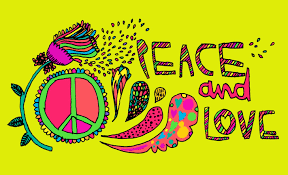Features
I choose peace over democracy

Nobody would ever think that the smallest attempt to cause civil disorder could gain any momentum in the capital towns of a country that has gained recognition as the champion of civil rights and order in the world.

In fact, I personally believe that it wouldn’t even cross the mind of anyone who has travelled to the seat of the Government of the United States of America, Washington, D.C., that an attempt to thwart and prevent the application of democracy would work.
But all that happened because one person, I mean just one influential leader, decided to incite his followers over a belief that their democratic rights had been abused and compromised.
The amenities and fruits of the democratic system, and the rights and privileges of the citizens of America are so cherished and guarded by almost every segment of American society that, “no one dares to play with any of the above,” whether in politics or just in social and communal discourse.
Beyond all that, the good people of the United States of America have given priority to peace in their homeland over their cherished democratic system.
This is evident in the handling of the actions of the former president, Donald Trump. I am simply referring to the famous insurrection of 2021 in the United States of America.
Nothing equates to the loss of a single life and peace of the people—not even the full gains of democracy over the rule of law and peace.
Barely a week ago, I read on Ghanaweb.com a statement purportedly made by a former diplomat and astute politician that “Ghana would become like Gaza or Ukraine if the electoral commission didn’t allow the electoral register to be audited forensically.”
I equate the above ill-fated and venomous statement to the one
President Trump made to his followers that incited them to overturn the election results in his favour.
In a small country like Ghana, with a population of a little over 35 million people, we cannot afford to lose our sight and grip on the wheels as we strive to maintain our position and commitment as the most peaceful country and the beacon of democracy in the sub-Saharan region.
In our drive and quest to achieve real holistic peace that encompasses total human security—which also invites and accommodates good governance, transparency, accountability, and responsiveness to the needs of the people—we can decide to do away with and sacrifice the type of democracy that Ghana and several African countries are practicing, for peace.
As we hypocritically rain and shower praises and blessings on President Paul Kagame of Rwanda, we are promoting his style of governance and system of living and leadership. Certainly, nobody can assert that our revered President Kagame is really practicing the type of democracy that we are observing and applying here in Ghana today, as we allow some powerful influencers to dictate to us how to apply the principles of leadership and governance in our country.
In Nicaragua, a nice and beautiful country that has now become a transit point to the United States or Canada, I enjoyed my brief stay. My observation in Nicaragua is that the type of democracy President Ortega is running is no different from Rwanda, except that Nicaragua has serious human rights issues of concern to all.
In 2016, President Ortega nominated his wife as vice president of the Republic, and the party consented, eventually winning the elections. What a wonderful country.
Let’s face the facts—everyone wants to share happy moments with loved ones. I would not encourage this anywhere, although I see no harm if the wife or family member is qualified.
My point is that “whatever system of governance Rwanda and Nicaragua are administering in their countries, they are proportionally trying to deliver for their people, and most of all, they have brought about peace and stability in their countries.”
I am in no way advancing any theory or argument for Ghana to follow suit, but I am seriously advocating for us to “choose peace and stability in Ghana at the expense of a democracy that ruins our peace.”
Any good leader can deliver for his people without democracy.
The late Colonel Gaddafi—may his soul rest in peace—delivered to his people beyond doubt, and presently, Crown Prince of Saudi Arabia, Muhammad Bin Salman, whom I admire so much, is delivering to his people beyond doubt. In the two regimes above (Libya and Saudi Arabia), no single principle or element of democracy is fully respected.
As I write this article, about 600 people have been reported killed by terrorists in our neighbouring country, Burkina Faso. Our families in Burkina, Mali, Niger, Chad, and Nigeria tell us of the fear and instability they feel anytime they hear the sound of fireworks or anything that resembles gunfire.
It is for this reason that I am urging all peace-loving Ghanaians and everyone living in Ghana to:
- Choose peace over the type of democracy that allows us to destroy the very peaceful ambience, stability, religious and traditional tolerance, and coexistence that we have built and maintained for decades.
- Try, in our own communities beginning at home, to establish a system where justice is cherished and respected above all.
- Help, encourage, and collaborate with law enforcement officers to be professional in their duties, impartial, and uphold the constitution of the Republic without fear or favour.
- Adopt as a way of life, and instil in the minds and lifestyles of children, the principles of fairness, kindness, love, unity, peaceful coexistence, tolerance, compassion, and care for one another.
In my religious tradition, Islam encourages us to take care of one another, love your neighbour as yourself, feed and clothe the poor and needy, accommodate the orphans, and love them. Be respectful to the elderly and merciful to the young. Give priority to mothers when it comes to obedience and kindness, above fathers.
By Alhaji Khuzaima Mohammed Osman
Features
Mysteries of this world
A young boy was travelling on a school trip to Mountain Afadja and his younger brother asked him to buy him meat pie when returning home from the journey. On their way back to Accra, he saw a vendor with meat pie and he moved quickly towards the front of the vehicle to buy one through the window.
A few seconds later, a vehicle smashed into the back of the bus where he was moments before and the aftermath was a disaster. His desire to honour his promise to his younger brother, saved him from death.
A lot of the students at the rear area of the bus died. Such is life and certain things are inexplicable. What made him see the meat pie vendor and leave the back seat towards the front of the bus, moments before the heavy truck crashed into the rear of the bus?
There are happenings in life that does not simply make sense and if you try to apply logical reasoning to them, they fail to explain why what happened.
Recently a young man who was working at a construction site decided to stop work briefly to get something to eat. On his way returning back, the whole three story building that he was working in had completely collapsed with a couple of his colleagues under the rubble.
Again the question is, why did he not delay his going out of the building for a few minutes which would have made him a victim of the incident? No logical explanation to this.
A cousin of mine was living in Takoradi during the early days of the 31st December revolution. One morning on his way to work, he was stopped by a soldier holding a gun and he told my cousin to get unto a truck parked by the roadside, ostensibly to join others already onboard to go do some job.
He was annoyed by someone just ordering him simply because he had authority. He brushed the gun aside and went past the truck heading towards his shop. According to him he heard behind him a gun being clocked and then he heard a soft voice telling him not to look back but continue along. He then hear people shouting “oh, oh” but he did not turn around to look back.
The place was a short distance from his refrigeration repair shop so he soon reached his shop. A few minutes after sitting down in front of his shop, people came rushing to him enquiring where he got his ‘power’ from. He asked them what they were talking about and they told him that the soldier clocked his gun to shoot him but as he suddenly started collapsing unto the ground.
This led them to believe that my cousin have some kind of juju powers, hence they asked him where he went for spiritual fortification. The intriguing question is, whose voice did he hear ordering him not to look back? It still baffles him up to this day.
The June 3rd disaster is another instance of a deliverance from certain death that my brother-in-law experienced. That afternoon he had gone to buy items for his JHS 3 son and as usual when going home, had gone to a store where he has some friends to chat with them for a while before going home.
After some few minutes, he decided to go home since he had been drenched by the drizzling that came after the earlier heavy rainfall. When he got home about 35 minutes later, he switched on the TV and a fire disaster that has burnt people to death as well as destroyed a fuel station, vehicles and buildings near the filling station, including the store where he had stopped to chat a short while ago. A voice had convinced him to leave the place and that was what saved him.
Being a Christian, I would attribute it to God but why he choose to deal with certain individuals and deliver them and the criteria for selection, is a mystery
By Laud Kissi-Mensah
Features
Navigating your emotional landscape: A journey of self-discovery and healing
Introduction
Our emotional landscape is a vast and intricate terrain, shaped by our experiences, thoughts, beliefs, and memories. It’s a world where our emotions, both conscious and unconscious reside, influencing our relationships, decisions, and overall well-being.
In this article, we’ll explore the concept of the emotional landscape, its components, and how understanding it can lead to greater self-awareness, emotional regulation, and healing.
The components of the emotional landscape
Our emotional landscape consists of various regions, each representing a different emotional state. These regions are shaped by our:
– Life experiences: Trauma, relationships, and significant events.
– Thoughts and beliefs: Positive or negative self-talk.
– Emotions: Joy, sadness, anger, fear, and more.
– Memories: Happy, painful, or neutral.
– Coping mechanisms: Healthy or unhealthy strategies for managing emotions.
Exploring your emotional landscape
To navigate your emotional landscape, start by:
– Identifying emotional patterns and triggers.
– Recognising areas for growth and healing.
– Developing emotional awareness and regulation.
– Cultivating self-compassion and acceptance.
Benefits of understanding your emotional landscape
By exploring and understanding your emotional landscape, you can:
– Gain greater self-awareness and emotional intelligence.
– Develop more effective coping mechanisms.
– Improve relationships and communication.
– Enhance emotional resilience and well-being.
– Unlock personal growth and transformation.
Conclusion
Navigating your emotional landscape is a journey of self-discovery and healing. By understanding the components of your emotional landscape and exploring its regions, you can gain a deeper connection with yourself and develop a more authentic, wholehearted existence.
Remember, your emotional landscape is unique and ever-changing, and embracing its complexities can lead to a more fulfilling and meaningful life.
BY ROBERT EKOW GRIMMOND-THOMPSON







